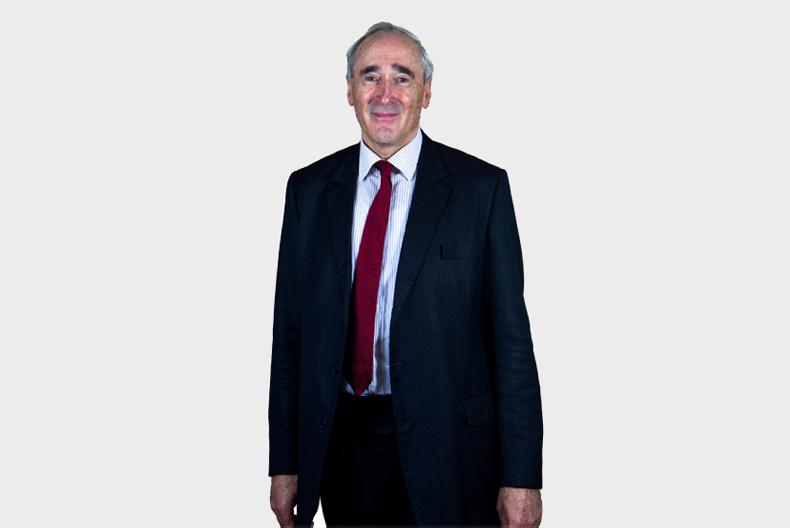With a home market of over 60m people and only about 60% self-sufficient in food, I had always assumed British farmers were relaxed about the vote to leave the EU. However, in fact Brexit is seen as a fundamental shift in the conditions in which British agriculture operates and how British farming and food are affected is going to have a real effect on Irish farming and food exports.
There is much more of an identity of interest than I had realised. It was with some curiosity that I accepted an invitation to listen to the views of the new director general of the National Farmers Union (NFU) of England and Wales, Terry Jones.
The NFU, at 109 years of age, predates the establishment of the IFA by about 50 years but the aim of both organisations is the same – to influence policy for the benefit of the sector. They aim to represent the entire sector in their countries and operate at national, European and international levels.
Despite the small size of the direct farming sector in the UK, its access to government has always been strong but its effectiveness has inevitably varied with the government priorities. At this stage, the NFU is portraying farming as part of the whole food industry with over 3.9m jobs across the economy, and claims that food and agriculture will be the most affected by Brexit of any sector. But there are lot of unanswered questions, such as what are the likely trade arrangement in food and farm products between Britain and Europe? Ironically, the NFU sees the UK general election results as strengthening farming’s hand with both Ulster’s DUP and the resurgent Scottish Conservatives having strong farming MPs representing strong farming constituencies. But as well as no answers on trade, neither are there answers on what kind of support framework is likely to be put in place nor how the huge dependence on foreign labour is going to be solved. Already, the NFU is finding it more difficult to get access to all levels in Brussels and, while it is clear that its objective is free and frictionless trade with the EU, it recognises that it is part of a much bigger picture. It also recognises that it has a new fiercely pro-Brexit secretary of state in Michael Gove, whom they will have to influence.
For different reasons Irish and British farmers’ interests are closely aligned in seeing the minimum possible changes to the present trading arrangements, but it will be a long time before we will have real clarity.
Read more
Opinion: Ireland must ensure the EU stays together
Colm McCarthy: consequences for the UK quitting the EU
Full coverage: Brexit
With a home market of over 60m people and only about 60% self-sufficient in food, I had always assumed British farmers were relaxed about the vote to leave the EU. However, in fact Brexit is seen as a fundamental shift in the conditions in which British agriculture operates and how British farming and food are affected is going to have a real effect on Irish farming and food exports.
There is much more of an identity of interest than I had realised. It was with some curiosity that I accepted an invitation to listen to the views of the new director general of the National Farmers Union (NFU) of England and Wales, Terry Jones.
The NFU, at 109 years of age, predates the establishment of the IFA by about 50 years but the aim of both organisations is the same – to influence policy for the benefit of the sector. They aim to represent the entire sector in their countries and operate at national, European and international levels.
Despite the small size of the direct farming sector in the UK, its access to government has always been strong but its effectiveness has inevitably varied with the government priorities. At this stage, the NFU is portraying farming as part of the whole food industry with over 3.9m jobs across the economy, and claims that food and agriculture will be the most affected by Brexit of any sector. But there are lot of unanswered questions, such as what are the likely trade arrangement in food and farm products between Britain and Europe? Ironically, the NFU sees the UK general election results as strengthening farming’s hand with both Ulster’s DUP and the resurgent Scottish Conservatives having strong farming MPs representing strong farming constituencies. But as well as no answers on trade, neither are there answers on what kind of support framework is likely to be put in place nor how the huge dependence on foreign labour is going to be solved. Already, the NFU is finding it more difficult to get access to all levels in Brussels and, while it is clear that its objective is free and frictionless trade with the EU, it recognises that it is part of a much bigger picture. It also recognises that it has a new fiercely pro-Brexit secretary of state in Michael Gove, whom they will have to influence.
For different reasons Irish and British farmers’ interests are closely aligned in seeing the minimum possible changes to the present trading arrangements, but it will be a long time before we will have real clarity.
Read more
Opinion: Ireland must ensure the EU stays together
Colm McCarthy: consequences for the UK quitting the EU
Full coverage: Brexit






 This is a subscriber-only article
This is a subscriber-only article










SHARING OPTIONS: